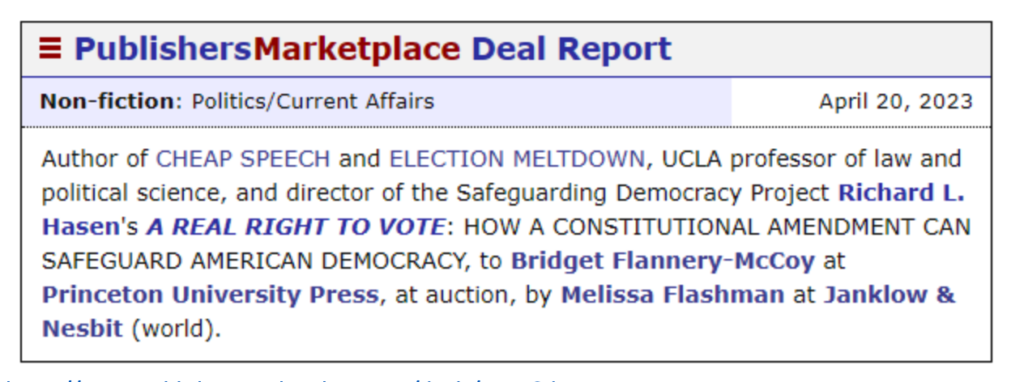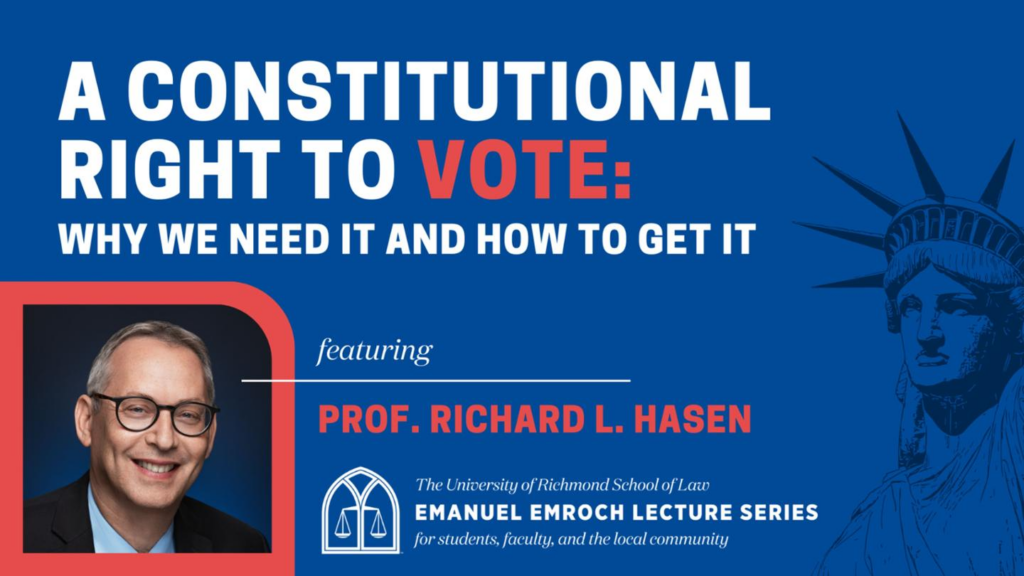I have written this draft, forthcoming this spring in Volume 134 of the Yale Law Journal. I consider it my most important law review article (or at least the most important that I’ve written in some time). It offers a 30,000-foot view of the state of election law doctrine, politics, and theory. The piece is still in progress, so comments are welcome. Here is the abstract:
American election law is in something of a funk. This Feature explains why, what it means, and how to move forward.
Part I of this Feature describes election law’s stagnation. After a few decades of protecting voting rights, courts (and especially the Supreme Court), acting along ideological—and now partisan—lines, have pulled back on voter protections in most areas of election law and deprived other actors including Congress, election administrators, and state courts of the ability to more fully protect voters rights. Politically, pro-voter election reform has stalled out in a polarized and gridlocked Congress, and the voting wars in the states mean that ease of access to the ballot depends in part on where in the United States one lives. Election law scholarship too has stagnated, failing to generate meaningful theoretical advances about the key purposes of election law.
Part II considers the retrogression of election law doctrine, politics, and theory to a focus on the very basics of democracy: the requirement of fair vote counts, peaceful transitions of power, and voter access to reliable information. Courts on a bipartisan basis in the aftermath of the 2020 election rejected illegitimate attempts to overturn Joe Biden’s presidential election victory. Yet the courts’ ability to thwart attempted election subversion remains a question mark in light of the Supreme Court’s recent decisions in Trump v. Anderson and Trump v. United States. Politically, Congress came together at the end of 2022 to pass the Electoral Count Reform Act to deter future attempts to manipulate electoral college rules in order to subvert election results, but future bipartisan action to prevent retrogression seems less likely. Further, because of the collapse of local journalism and the rise of cheap speech, voters face a decreased ability to obtain reliable information to make voting decisions consistent with their interests and preferences. Meanwhile, parties have become potential paths for subversion. Party-centered election law theory and the First Amendment “marketplace of ideas” theory have not yet incorporated these emerging challenges.
Part III considers the potential to transform election law doctrine, politics, and theory in a pro-voter direction despite high current levels of polarization, the misperceived partisan consequences of pro-voter election reforms, and new, serious technological and political challenges to democratic governance. Election law alone is not up to the task of saving American democracy. But it can help counter stagnation and thwart retrogression. The first order of business must be to assure continued free and fair elections and peaceful transitions of power. But the new election law must be more ambitiously and unambiguously pro-voter. The pro-voter approach to election law is one grounded in political equality and based on four principles: all eligible voters should have the ability to easily register and vote in a fair election with the capacity for reasoned decisionmaking; each voter’s vote is entitled to equal weight; the winners of fair elections are recognized and able to take office peacefully; and political power is fairly distributed across groups in society, with particular protection for those groups who have faced historical discrimination in voting and representation.

